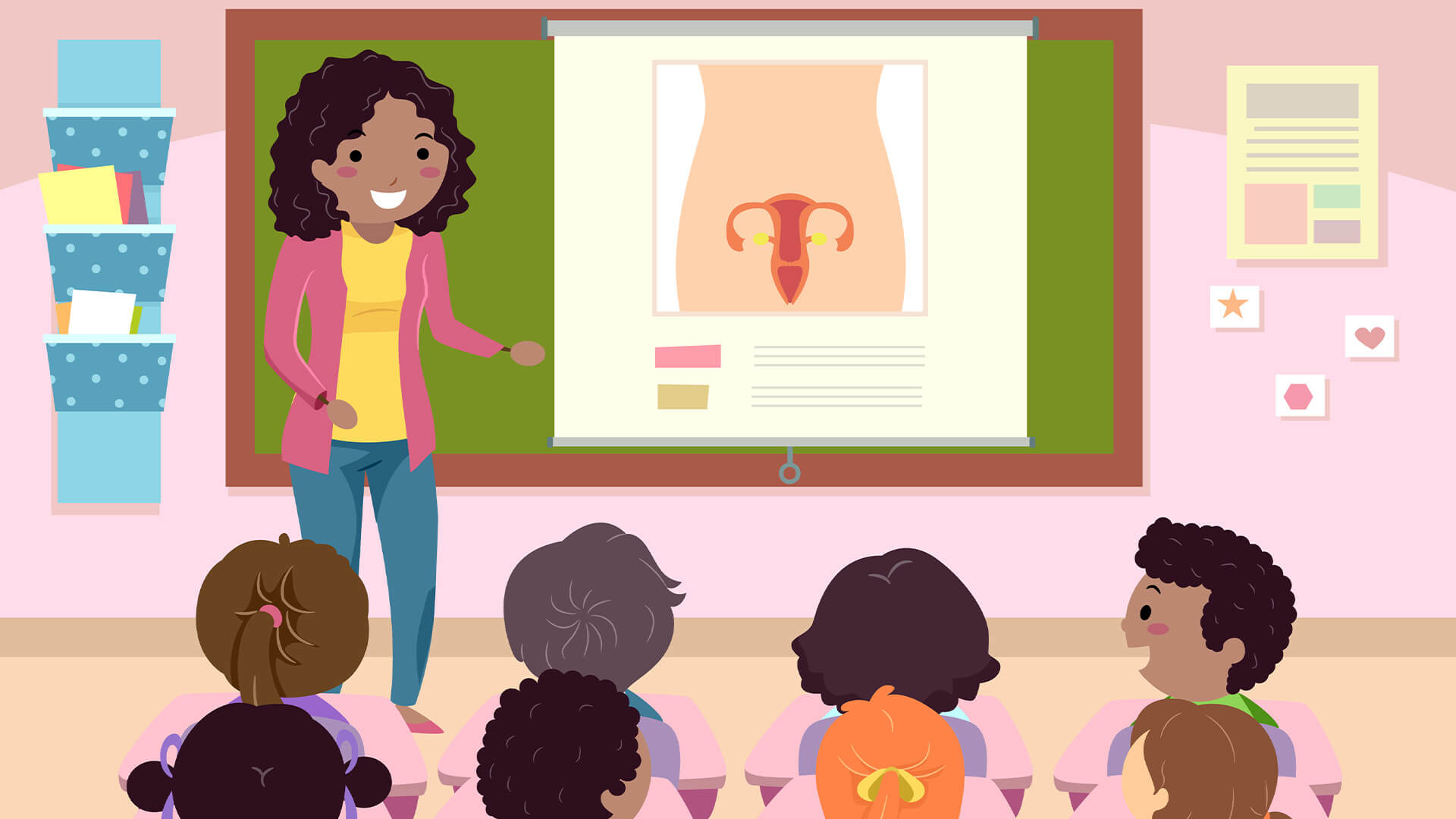Unsurprisingly, the content of school curriculums is extremely important—what we learn as a child has the ability to shape our understanding as we mature. Content on sexual health and how our bodies change through time should be promoted through our curriculums to empower young pupils. It’s imperative for understanding puberty, why our moods are swinging, which products are available such as teenage tampons and the physical changes in our bodies. But what about menopause? Both are equally important transitions in life.
Menopause is a natural part of ageing that will affect all women at some point, it’s when their oestrogen levels decline and periods stop altogether. According to the NHS, most women will experience symptoms, however the severity and how long they last will vary. For example, symptoms such as irregular periods and heavy bleeding begin in the perimenopause stage—a few months or even years before a woman’s final period. On average, symptoms can continue for four years, however, one in every 10 women can experience symptoms for up to 12 years.
For the majority of us who weren’t taught about menopause when we were young, it’s likely we won’t be entirely sure what is happening or why we’re feeling like we are. Because of this, many women don’t know what symptoms to expect and how to manage them. Making the switch to tampons for heavy periods during the perimenopause stage, for example, can play an important part in managing unusually heavy periods. But, if women don’t know why this change is happening, they may be reluctant to seek help and prepare themselves for such changes.
Why menopause is being added
From the beginning of this school year, menopause will be taught as part of the UK’s national sex education curriculum following a request from MP Rachel Maclean. Menopause Support campaigners have argued that menopause can cause relationship issues as many of us don’t have a full understanding of what the menopause involves and how it might affect a woman’s life.
The symptoms of the menopause include much more than just hot flushes, which 75% of women suffer from. There are more than 30 symptoms, ranging from both physical to mental, and can take a drastic toll on a woman’s wellbeing. Symptoms can be far-ranging, from night sweats and heart palpitations to memory loss and anxiety.
The introduction of this educational content aims to help young pupils to support the women in their lives, be it mothers and sisters, or future partners and colleagues.
One woman told the BBC, “I didn’t know it was coming so it hit me like a brick wall. My first symptom was tingly legs. It feels like there’s something crawling under your skin. My brain was foggy, and I’d forget words in sentences. I had to write everything down, and if I didn’t write it down, or put it in my phone, it wasn’t going to get done.”
Another said: “I felt small. I felt alone. I’ve been teaching for 28 years and so to suddenly feel like I couldn’t do my job, I thought I was going mad actually. I was worried about how I would get through this. And I thought about not being here. I had some awful thoughts. But I didn’t make the connection between my mental well-being and menopause. No-one tells you that. Often women talk about physical symptoms but the mental well-being that’s the kicker. I wish that more people made that connection earlier on.”
A win for women
Menopause is usually discussed by women approaching middle age, with few resources for partners and children. Unfortunately, there is a stigma attached to menopause, a transition in life considered scary, problematic, and something women often like to keep hidden from others. Because of this, society has remained uninformed about menopause, perpetuating a stigma and preventing opening dialogue about it—women have been cited as feeling reluctant to speak about it due to perhaps missing a promotion or that they’ll be viewed negatively. A common misconception is that menopausal women are emotional, hormonal, and erratic.
Family and friends can be dismissive too. Sadly, many of us that have periods have heard comments such as, “Oh, it’s that time of the month again!”. The same goes for those experiencing menopause, and it can be extremely infuriating.
Sexual education has positive effects on pupils, improving their attitudes towards sexual and reproductive health and behaviours. Teaching children about menopause will help them become well-rounded individuals that support those around them experiencing symptoms and prepare them for the eventuality of experiencing those symptoms themselves. If menopause is more widely discussed it becomes less of a dreaded topic that gets brushed under the carpet and instead is embraced as another stage in a woman’s life, much like pregnancy.
With education comes awareness, and the gradual breakdown of stigma. Now that menopause education is being included in the curriculum, young girls will be equipped with the knowledge to identify the change as they age and will hopefully feel comfortable in seeking help and offering support to others going through this menopause.
According to statistics, 90% of women say their workplace doesn’t offer help to menopausal women. Only 5% of workplaces offer free advice, 3% have policies in place, and 3% of line managers are given relevant training. With an inclusive sexual and reproductive education, will our social lives and workplaces benefit from more people being aware of, and understanding, the changes women experience?


















